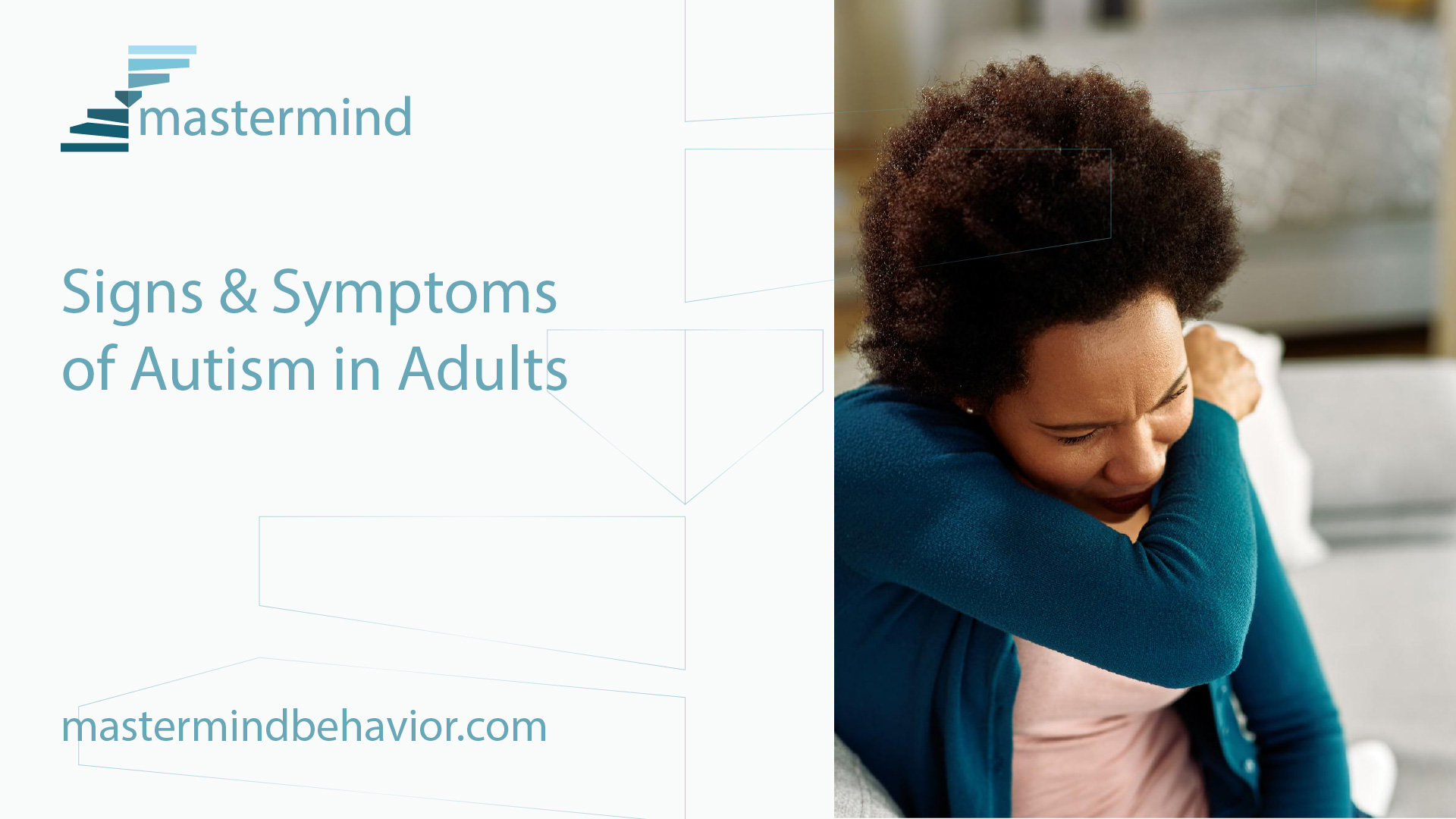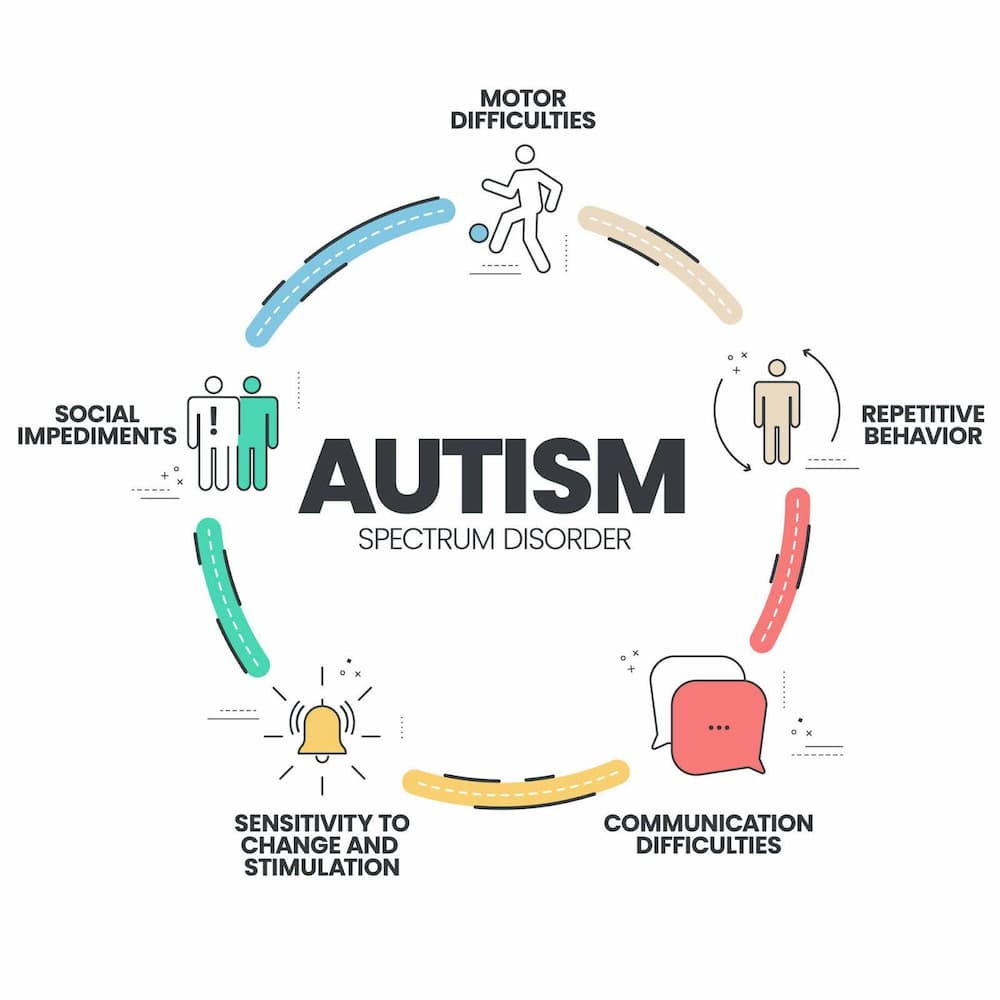Can Autism Spectrum Therapies help with developing independence in teens with ASD?
Can Autism Spectrum Therapies help with developing independence in teens with ASD?
Blog Article
Trick Symptoms And Signs to Identify in People With Behavior Autism
When you come across somebody with behavior autism, acknowledging essential indicators and signs and symptoms is essential. You might see challenges in social communications and interaction, as well as a strong demand for regimens. In addition, sensory level of sensitivities can bring about overwhelming experiences. Comprehending these qualities can boost your assistance and treatments, but there's even more to reveal about exactly how these behaviors manifest in daily scenarios. Allow's explore what these indications actually look like.
Obstacles in Social Communications
When you interact with a person on the autism spectrum, you might see they have problem with social signs and interaction. These obstacles can make social communications really feel frustrating for them. You might see them avoiding eye contact or standing too close or as well away throughout conversations, which can develop misconceptions. They could not pick up on body language or faces, making it harder for them to assess exactly how others are really feeling.
When they do involve, they could chat about their rate of interests in excellent information without observing if you're interested. Recognizing these challenges can aid you come close to communications with compassion and perseverance, promoting an extra comfortable atmosphere for both of you.
Trouble With Verbal and Non-Verbal Interaction

Non-verbal communication can be even a lot more challenging. You could see an absence of eye get in touch with or minimal use motions, which can make interactions really feel unpleasant. Faces may not constantly straighten with the conversation, causing complication regarding their sensations. Recognizing these signs is important, as it assists you much better support and engage with people on the autism range. By understanding their interaction obstacles, you can cultivate much more meaningful links and give a much more helpful setting.
Repetitive Behaviors and Routines
Communication challenges typically go along with various other indicators of autism, such as recurring behaviors and a strong choice for regimens. You may discover that individuals with autism commonly participate in particular, repetitive activities, like hand-flapping, rocking, or repeating expressions. These behaviors can offer convenience and a feeling of control in an usually frustrating globe.
When they comply with an organized timetable,Routines are just as crucial; numerous people thrive. You may discover that changes to these regimens can cause substantial distress. If they have a day-to-day ritual of consuming morning meal at a details time or complying with a particular path to institution, any type of disturbance can cause anxiety.
Acknowledging these patterns aids you recognize their behavior and give support. By suiting their requirement for routine and enabling repetitive activities, you can create a much more comfortable environment that eases their difficulties.
Sensory Level Of Sensitivities

Common Sensory Triggers
Sensory sensitivities can significantly influence day-to-day live for people with autism, as particular stimuli usually cause frustrating responses. Typical sensory triggers include loud sounds, brilliant lights, and solid smells. You could notice that abrupt noises, like alarms or alarms, cause anxiety or distress. Likewise, fluorescent lights in stores can really feel harsh and awkward. Textures can additionally play a significant duty; rough materials or certain food structures may be intolerable for you. Additionally, crowded locations can bewilder your detects, making it tough to unwind or concentrate. Understanding these triggers can assist you manage your setting much better. By knowing what influences you, you can take steps to minimize discomfort and enhance your everyday experiences.
Behavior Actions Explained
Comprehending your behavioral responses to sensory level of sensitivities is vital, as they typically reveal how you communicate with the world. You may discover that specific audios, lights, or textures bewilder you, resulting in stress and anxiety or pain. When confronted with these stimulations, you may take out, cover your ears, and even react aggressively. These responses aren't simply traits; they're your method of managing overstimulation. You may additionally discover yourself looking for specific sensory experiences, like deep stress or peaceful environments, to aid ground on your own. Acknowledging these patterns official site assists you understand your demands far better and can direct how you connect them to others. By recognizing your sensory level of sensitivities, you can work in the direction of developing a setting that really feels more convenient and comfy for you.
Coping Methods Review
Recognizing your sensory level of sensitivities is just the first step; now it's time to check out coping approaches that can help you handle those experiences efficiently. Start by developing a sensory toolkit tailored to your demands. This could consist of noise-canceling headphones, fidget toys, or calming fragrances. Developing an organized routine can additionally supply predictability, decreasing anxiety around sensory overload. Take breaks in a peaceful room to regroup when you really feel overloaded. Exercising mindfulness techniques like deep breathing can assist ground you in the moment. Furthermore, interact your requirements with those around you; having encouraging loved ones can make a substantial difference. Remember, finding what works finest for you may require time, so be open and patient to trying brand-new methods.
Restricted Interests and Focus
While lots of people create a wide variety of interests, those with autism typically show restricted interests and an intense focus on details topics. You may see that someone with autism can invest hours delving into their favored subject, whether it's a specific sort of train, a details movie, or a scientific principle. This extreme focus isn't just a hobby; it can become a main part of their identity and social communications.
You may discover that conversations rotate around these rate of interests, and they might struggle to participate in broader topics. For them, these concentrated passions provide convenience and a feeling of mastery. While it's crucial to urge expedition of new subjects, appreciating their passions is similarly crucial. By understanding and recognizing these limited passions, you can cultivate an encouraging environment where they feel valued and understood, allowing for even more purposeful links and interactions.
Psychological Regulation Difficulties
Individuals with autism usually deal with obstacles in emotional law, which can be affected by their intense focus on particular passions. You may discover that when a person is deeply engaged in a preferred activity, they can experience strong emotions, whether excitement or frustration. This intensity sometimes makes it tough for them to move gears or manage their feelings when points don't go as prepared.

Variability in Developing Landmarks
When it comes to developing turning points, you'll observe that individuals with autism commonly show a vast range of irregularity. You could see a youngster stand out in language skills but struggle with social communications.
It's important to recognize that each person's trip is distinct. Observing these patterns can help you recognize their strengths and needs better.
Regularly Asked Inquiries
Just How Is Autism Detected in Kid and Grownups?
To diagnose autism in adults and youngsters, experts evaluate habits, communication skills, and social interactions. If an individual meets the standards for autism spectrum condition., they typically make use of standardized examinations, interviews, and monitorings to determine.
Are There Various Kinds of Autism Range Disorders?
Yes, there are various kinds of autism range disorders, consisting of Asperger's syndrome and pervasive developmental disorder-not or else defined. Each type differs in severity and qualities, so understanding these differences can assist you better support individuals with autism.
What Treatments Are Efficient for Individuals With Autism?
When thinking about effective treatments for people with autism, you'll locate choices like Applied Actions Analysis, speech therapy, and occupational treatment. Each strategy can assist improve communication, social skills, and everyday working tailored to private demands.
Can People With Autism Lead Independent Lives?
Yes, individuals with autism can lead independent lives. With the ideal support, skills training, and resources, you can help them develop self-sufficiency, manage everyday jobs, and grow in various environments, promoting their self-reliance.
Exactly How Can Families Support Enjoyed Ones With Autism?
You can sustain your loved ones with autism by creating a structured environment, encouraging their passions, exercising patience, fostering communication, and promoting social abilities. Commemorate their success, regardless of just how little, and build a helpful area.
Although lots of people on the autism spectrum can recognize and make use of language, they commonly face considerable challenges with both non-verbal and verbal interaction. Acknowledging these indications is necessary, as it helps you far better assistance and involve with individuals on the autism spectrum. You might notice that people with autism frequently involve in particular, repeated actions, like hand-flapping, shaking, or repeating expressions.Sensory level of sensitivities can substantially impact day-to-day life for people with autism, as particular stimulations commonly activate overwhelming responses.When it comes to developing turning points, you'll view publisher site see that individuals with autism commonly show a vast array of variability.
Report this page